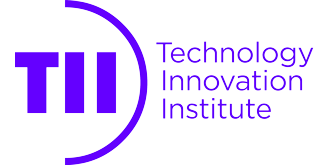Mohamed-Slim Alouni, King Abdullah University of Science and Technology.

Talk title: Towards connecting the remaining 3 Billion
Abstract: The transformative influence ofInternet and Communication Technology (ICT) has reshaped society, touching every aspect from the economy to healthcare. As the widespread deployment of 5G continues, there is an on-going focus on the inception of the sixth generation (6G) of wireless communication systems (WCSs). Anticipated to shape the future ofconnectivity in the 2030s, 6G aims to deliver unparalleled communication services to meet the demands ofhyper-connectivity. While densely populated urban areas have traditionally been the primary beneficiaries of WCS advancements, the vision for 6G transcends city limits. Aligned with the United Nations' sustainability goals for 2030, an important aspect of 6G endeavors to democratize the benefits of ICT, fostering global connectivity sustainably. This talk delves into this particular envisioned landscape of 6G, providing insights into the future ofwireless communication and guiding research efforts towards sustainable, inclusive, and high-speed connectivity solutions for the future. Central to this discussion are two emerging technologies: Free Space Optics (FSO) and Non-Terrestrial Networks (NTN). These innovative solutions hold the promise of extending high-speed connectivity beyond urban hubs to underserved regions, fostering digital inclusivity and contributing to the development of remote areas. Through this exploration, we aim to convey the potential of 6G and its role in shaping a connected, sustainable future for all.
Bio: Mohamed-Slim Alouini was born in Tunis, Tunisia. He received the Ph.D. degree in Electrical Engineering from the California Institute of Technology (Caltech) in 1998. He served as a faculty member at the University of Minnesota then in the Texas A&M University at Qatar before joining in 2009 the King Abdullah University of Science and Technology (KAUST) where he is now the Al-Khawarizmi Distinguished Professor of Electrical and Computer Engineering. Prof. Alouini is a Fellow of the IEEE and OPTICA (Formerly the Optical Society of America (OSA)). He is currently particularly interested in addressing the technical challenges associated with the uneven distribution, access to, and use ofinformation and communication technologies in rural, low-income, disaster, and/or hard-to-reach areas.
Halim Yanikomeroglu, Carleton University.
Talk title: TBD
Abstract: TBD.
Bio: Professor Halim Yanikomeroglu (Fellow, IEEE) is currently a Professor with the Department of Systems and Computer Engineering, Carleton University, Ottawa, ON, Canada. His collaborative research with industry has resulted in 37 granted patents. His research interest includes 5G/6G wireless networks. He is a fellow of the Engineering Institute of Canada (EIC) and The Canadian Academy of Engineering (CAE). He received several awards for his research, teaching, and service, including the IEEE Communications Society Wireless Communications Technical Committee Recognition Award, in 2018, and the IEEE Vehicular Technology Society Stuart Meyer Memorial Award, in 2020. He was the General Chair of the IEEE VTC 2010-Fall, Ottawa, and VTC 2017-Fall, Toronto. He also served as the Chair for the IEEE Technical Committee on Personal Communications. He was the Technical Program Chair/Co-Chair of WCNC 2004, Atlanta, WCNC 2008, Las Vegas, and WCNC 2014, Istanbul. He is serving as the Chair for the IEEE Wireless Communications and Networking Conference (WCNC) Steering Committee. He is a Distinguished Speaker of the IEEE Communications Society and the IEEE Vehicular Technology Society..
Muhammad Imran, University of Glasgow.
Talk title: Exploring the Boundaries of Connected Systems: Communications for Hard-to-Reach Areas and Extreme Conditions
Abstract: In an increasingly interconnected world, the ability to establish reliable communication networks in remote and challenging environments is vital. This keynote will delve into the innovative strategies and technologies that are expanding the frontiers of connectivity. We will explore the unique challenges posed by hard-to-reach areas, such as remote islands, dense forests, and high-altitude regions, as well as the extreme conditions found in disaster zones and polar environments. Highlighting recent advancements in satellite communications, shared spectrum access, self-organised networks, and energy efficient resilient infrastructure, this talk will showcase how these cutting-edge solutions are enabling seamless communication where it was previously thought impossible.
Drawing on reflections from successful projects across Scotland, the Americas, Europe, and Africa, we will illustrate how lessons learned from the Arctic to the Andes could help billions get online. Join us as we uncover the future of global connectivity and the transformative impact it promises for societies worldwide.
Bio: Professor Muhammad Imran received my M.Sc. (Distinction) and Ph.D. degrees from Imperial College London, UK, in 2002 and 2007, respectively. I am a Professor in Communication Systems in the University of Glasgow, Dean University of Glasgow UESTC, Head of Communications Sensing and Imaging (CSI) research group and Director of Glasgow UESTC Centre of Educational Development and Innovation. I also serve as an affiliate Professor at the University of Oklahoma, USA; Adjunct Research Professor AIRC, Ajman University UAE and a visiting Professor at 5G Innovation centre, University of Surrey, UK.
I have led a number of multimillion-funded international research projects and the "new physical layer" work area for 5G innovation centre at Surrey. I have a global collaborative research network spanning both academia and key industrial players in the field of wireless communications. I have supervised 50+ successful PhD graduates and published over 500 peer-reviewed research papers including more than 100 IEEE Transaction papers.
Mehdi Bennis, University of Oulu.
_compressed.jpg)
Talk title: TBD
Abstract: TBD.
Bio: Professor Mehdi Bennis is a Professor at the Centre for Wireless Communications, University of Oulu, Finland, Academy of Finland Research Fellow and Head of the intelligent connectivity and networks/systems group (ICON). He has published more than 200 research papers in international conferences, journals and book chapters. His main research interests are in radio resource management, heterogeneous networks, game theory, and distributed machine learning in 5G networks and beyond. He has been the recipient of several prestigious awards including the 2015 Fred W. Ellersick Prize from the IEEE Communications Society, the 2016 Best Tutorial Prize from the IEEE Communications Society, the 2017 EURASIP Best paper Award for the Journal of Wireless Communications and Networks, the all-University of Oulu award for research, the 2019 IEEE ComSoc Radio Communications Committee Early Achievement Award and the 2020 Clarviate Highly Cited Researcher by the Web of Science. He is an editor of IEEE TCOM and Specialty Chief Editor for Data Science for Communications in the Frontiers in Communications and Networks journal.




